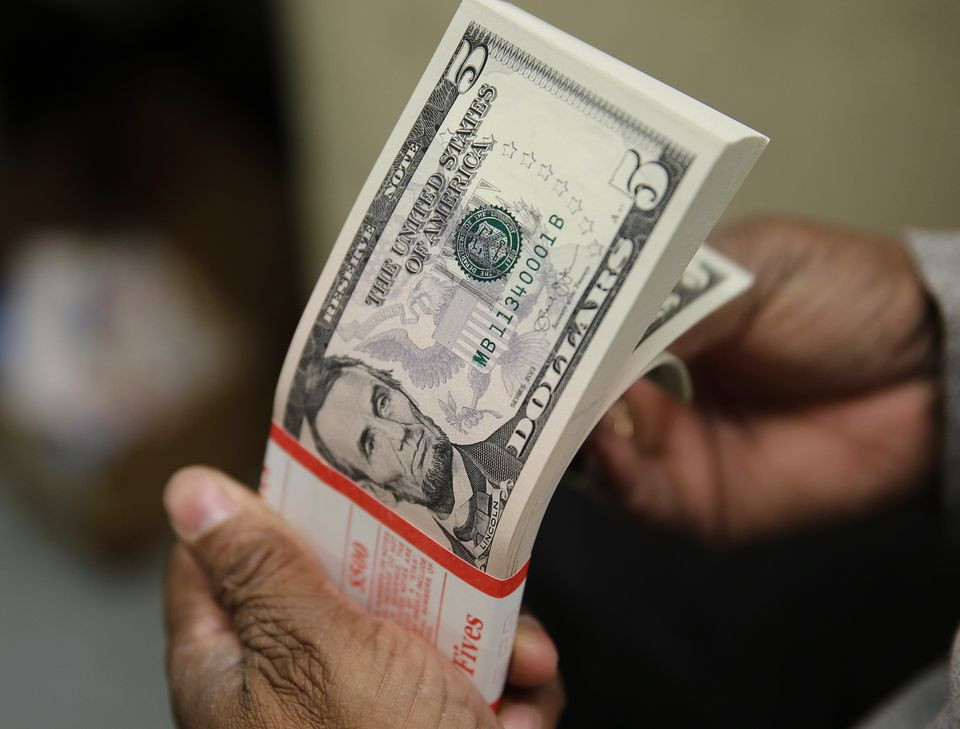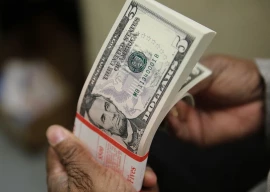
Pakistani rupee maintained its free fall for the 15th successive working day, as it hit an intra-day low of around Rs203 against the US dollar for the first time in the inter-bank market on Thursday, after the International Monetary Fund (IMF) delayed the resumption of its $6 billion loan programme.
The rupee hit an intra-day low of Rs202.90 against the greenback. Later, it partially recovered the intra-day losses and closed at Rs202.01, showing a day-to-day drop of 0.04% (or Rs0.09) from Wednesday’s close of Rs201.92.
The domestic currency has cumulatively plunged 8.78% (or Rs16.32) in the past 15 consecutive working days.
Experts said that the delay in the IMF programme and growing shortage of foreign currency to an alarming level increased the country’s default risk to a two-decade high at over 1,500 in the world market.
The developments made Pakistani traders panic who rushed to buy dollars to pay for imports.
The country’s default risk, measured by the credit default swap (CDS), has spiked to over 1,549 on the global index, said finance ministry’s former adviser Dr Khaqan Hasan Najeeb.
Besides, the yields on Pakistan’s Eurobond in the global market soared to 26-27%.
The international oil price has once again surged to over $117 a barrel as compared to $110 a couple of days ago.
The development stands negative for the rupee, as Pakistan heavily relies on imported energy to meet the local demand.
“Astronomical decisions needed by Pakistan,” Najeeb remarked.
Read Govt committed to reviving the IMF programme, says Miftah
“The rupee will maintain its downturn until the IMF resumes the $6 billion loan programme for Pakistan,” Pak-Kuwait Investment Company Head of Research Samiullah Tariq said.
Pakistan-IMF’s Doha talks (May 18-25) ended inconclusively and the programme has been delayed.
Pakistan is badly in need of the IMF loan programme to increase its capacity to make international payments and avert the risk of default on global payments.
The global lender had conditioned the revival of its loan programme with the withdrawal of subsidies on petroleum products and electricity.
Finance Minister Miftah Ismail had earlier ruled out passing on the increase in international energy prices to the end-consumers, as the action would increase inflation to over 15% in the country.
Pakistan’s foreign exchange reserves have depleted to a critically low level of six weeks of import cover at $10.08 billion.
Islamabad is estimated to record a net outflow of over $7 billion from the reserves in May and June, as it is scheduled to repay the maturing global bonds worth $4.5 billion and another $3 billion to finance the current account deficit by the end of June 2022.
Published in The Express Tribune, May 27th, 2022.
Like Business on Facebook, follow @TribuneBiz on Twitter to stay informed and join in the conversation.


1725612926-0/Tribune-Pic-(8)1725612926-0-165x106.webp)

















COMMENTS (1)
Comments are moderated and generally will be posted if they are on-topic and not abusive.
For more information, please see our Comments FAQ